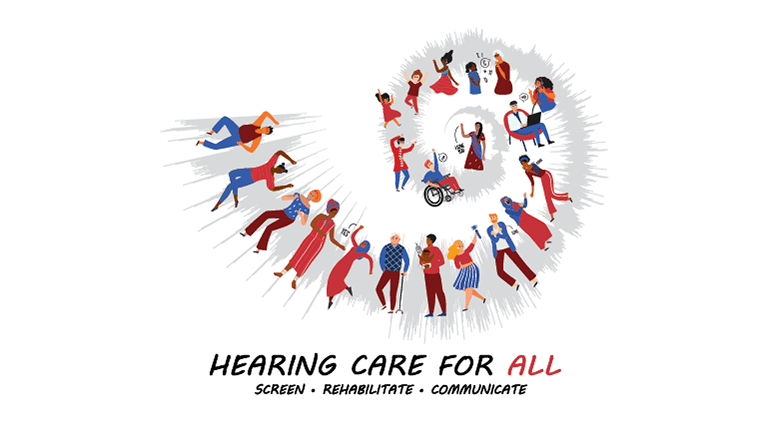- How to Care for Infants With Hearing Loss - April 15, 2024
- Hearing Aid Tips for Runners - April 5, 2024
- Overcoming Misconceptions Around Hearing Aids - March 27, 2024
Have you been having trouble hearing? Do you feel that everyone around you is mumbling or that the television is always too quiet? Hearing loss impacts nearly 40 million Americans, and the number is growing as the baby boomer generation continues to age. Hearing loss affects half of all seniors over the age of 75. If you’ve noticed that your hearing isn’t as sharp as it once was, take care of your hearing health by booking a hearing test on World Hearing Day.
A day for hearing health
Every year on March 3, the World Health Organization (WHO) selects a new theme to raise awareness about hearing loss, reduce the stigma associated with hearing loss and other communication disorders, and encourage people to take control of their hearing health. This year’s theme is ‘Hearing Care For All’ and encourages everyone to be vigilant about their hearing loss by avoiding noise, practicing good hearing health, and getting treated early.
Do you have hearing loss?
Although an age-related hearing loss affects many seniors, your hearing health is also at risk, and hearing loss is present in individuals of all ages.
Around 15% of adults suffer from hearing loss, making it difficult to follow conversations, especially in noisy environments. Noise-induced hearing loss or hearing loss caused by exposure to deafening noises is a common cause of hearing loss worldwide. Many activities can damage hearing, whether it is a noisy work environment or a loud music event, so wear ear protection whenever you think it might be too loud.
The number of children and teenagers with hearing loss is also on the rise, and young people are at risk of hearing loss from loud noises such as those heard at recess or in the gym. Many people listen to music with earbuds for hours every day, from the bus ride home to playing video games on the couch or blasting out their favorite songs while doing their homework. Keep an eye on your kids’ listening habits and make sure they’re not turning up the volume too loudly. Try and encourage them to follow the 60/60 rule – never listen at more than 60% of maximum volume, and take a break every 60 minutes to rest the ears.
When should you take a hearing test?
Regular hearing tests are recommended by hearing health specialists to ensure that your hearing is in good working order. Hearing loss can be slow to develop, and not everyone will notice it right away. Your loved ones may notice it before you do and complain that you ignore them when they speak to you from another room or that the TV is always turned up too loud. If your family has told you that you might have hearing loss, take it seriously and schedule a hearing test right away.
Seniors over the age of 60 should have their hearing tested on an annual basis. Due to the prevalence of age-related hearing loss, it is critical for this age group to have yearly hearing tests to detect their hearing loss before it becomes a problem. The key to successfully wearing hearing aids and bypassing the negative consequences of living with untreated hearing loss is to seek treatment as soon as possible.
Adults from 50 onwards should schedule baseline hearing tests every few years to monitor their hearing health and establish a baseline so that their hearing specialist is aware of any changes in their hearing. If you notice any changes in your hearing health, it’s always a good idea to get a hearing test.
Hearing screenings are also recommended for children and teens with congenital hearing loss to ensure that they can hear the teacher in the classroom, grow and develop alongside their hearing peers, and do not suffer from the stress of untreated hearing loss.
In recognition of World Hearing Day, why not contact us to schedule a hearing test? Our audiologists will make sure you’re on the road to better hearing, whether you’re looking for baseline testing or a comprehensive hearing test.

